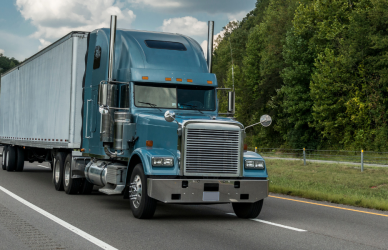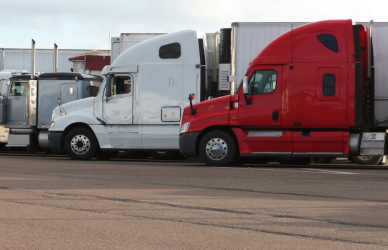The last year has been one of victory and success for the American Trucking Associations (ATA), and in turn, the trucking industry at large. Chris Spear, ATA president and CEO, delivered a speech on Oct. 24 reflecting on the many successes of 2022.
The victories were well-earned, following years of waiting for legislation to be passed to fiscally support vital road and bridge repairs. This year saw the realization of an infrastructure bill into a law alongside billions being funneled toward road and bridge repairs.
Here’s a look into three of the most overwhelming successes from the last year.
First, a battle against truck-only tolling came to end with a victory in federal court. Rhode Island had established a policy titled RhodeWorks which sought to impose tolls only on heavy-duty trucks. This was met with immediate pushback from the ATA, with the organization claiming it was both against the Constitution and was discriminatory.
“Make no mistake,” Spear said. “The impact of this victory extends far beyond Rhode Island’s borders. Any state debating a similar target on our industry has now received an unmistakable message: Don’t mess with trucking.”
Spear then moved onto celebrating the Infrastructure and Jobs Act becoming law. The previous administration had prioritized this act becoming law; however, it was officially signed into law by the Biden administration.
The Jobs Act included a training and hiring program targeted at young drivers to help relieve the driver shortage. Spear feels confident that the Jobs Act being signed into law was a step forward into increased job safety and security.
To conclude, Spear spoke to the ATA’s collaboration with the Environmental Protection Agency, specifically their Safeway program. The ATA aided the program in influencing emission regulations and observing the adoption of zero-tailpipe-emission electric trucks.
In his address, Spear cited that in modernity, 66 trucks produce the same amount of pollution as one truck that was operated in 1988. He then suggested refocused attention on the overturning of a 1917 law that, when purchasing a new truck, layers on a 12% federal excise tax. This tax racks up the total spending cost on a new truck, but it also constrains the purchasing of both convenience and safety equipment which can boost driver retention.
“This tax relic adds up to $25,000 to the cost of every power unit purchased today,” Spear said. “That hurts good-paying manufacturing jobs. That limits our ability to support the global supply chain. And it reduces the number of safe and environmentally friendly equipment operating on our nation’s highways.”











